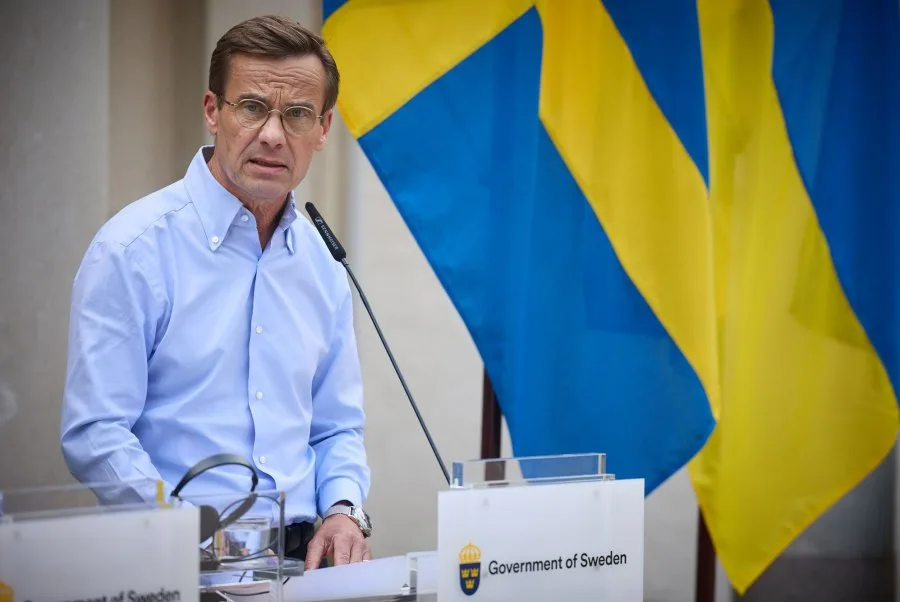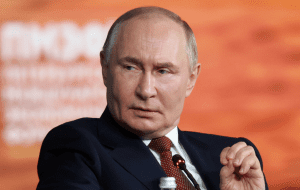Sweden and the Netherlands call on the EU to suspend its trade agreement with Israel, citing an “intolerable” humanitarian crisis in Gaza and Israel’s failure to implement aid commitments.

EU Trade Agreement With Israel Under Pressure
The European Union’s trade relationship with Israel is facing renewed scrutiny as Sweden and the Netherlands push for its suspension. In a joint letter to EU foreign policy chief Kaja Kallas, the two governments argued that Israel has failed to comply with commitments to improve humanitarian access in Gaza, calling the situation on the ground “intolerable.”
The move highlights a growing divide within the EU over how to respond to Israel’s ongoing military operations and the worsening conditions for civilians in the Gaza Strip.
Humanitarian Crisis in Gaza
The call comes against the backdrop of an escalating humanitarian crisis in Gaza, where aid agencies warn of severe shortages of food, medicine, clean water, and electricity. International observers say hundreds of thousands of Palestinians remain displaced, with health facilities struggling to function amid repeated strikes and a collapsing infrastructure.
“Despite the July agreement, which was meant to accelerate and expand humanitarian access, Israel has not delivered on its obligations,” the joint letter states. “The situation has reached a point that can no longer be tolerated.”
The letter underscores mounting frustration among EU members that Israel’s promises have not translated into measurable improvements for civilians.
The July Deal and Its Shortcomings
In July, the EU brokered a deal with Israel aimed at easing restrictions on aid deliveries into Gaza. The agreement included commitments to allow more humanitarian convoys, open border crossings more regularly, and protect medical facilities.
However, according to Sweden and the Netherlands, the implementation has been inconsistent at best. Reports indicate that border closures, inspection delays, and ongoing Israeli military actions have prevented meaningful progress.
EU Internal Divisions
The call to suspend trade marks one of the strongest positions taken by EU member states against Israel since the conflict intensified. Yet, the bloc remains divided.
Countries such as Germany, Austria, and Hungary have traditionally backed Israel and are expected to resist moves to suspend trade agreements. Meanwhile, nations like Ireland, Spain, and Belgium have been increasingly vocal in criticizing Israel’s actions.
Kaja Kallas, who received the joint letter, is tasked with balancing these competing pressures while formulating the EU’s collective foreign policy stance.
Potential Impact on EU-Israel Relations
The EU-Israel trade deal, signed in 1995, grants Israel preferential access to European markets. Suspending or freezing this agreement would represent a major diplomatic and economic blow for Israel, as the EU remains one of its largest trading partners.
For Sweden and the Netherlands, the move is not just symbolic. It signals a willingness to leverage economic tools as political pressure, especially in light of international law concerns over civilian protection.
Global and Regional Reactions
Human rights groups and Palestinian officials have welcomed the letter, framing it as long-overdue action. “The EU cannot continue business as usual while Gaza suffers under blockade and bombardment,” a spokesperson for the Palestinian Authority said.
Israel, however, has rejected the criticism, insisting that it has allowed aid into Gaza and blaming Hamas for diverting supplies. Israeli officials are expected to lobby EU capitals intensively in the coming weeks to prevent consensus on trade suspension.
What Happens Next?
The issue will likely be debated at the next meeting of the EU Foreign Affairs Council, where decisions require unanimity. Analysts say a full suspension of trade is unlikely without broader support but note that Sweden and the Netherlands have shifted the debate significantly.
As Gaza’s humanitarian crisis deepens, pressure on the EU to act grows stronger. Whether the bloc can move beyond statements of concern to concrete measures remains uncertain.













Comments are closed.